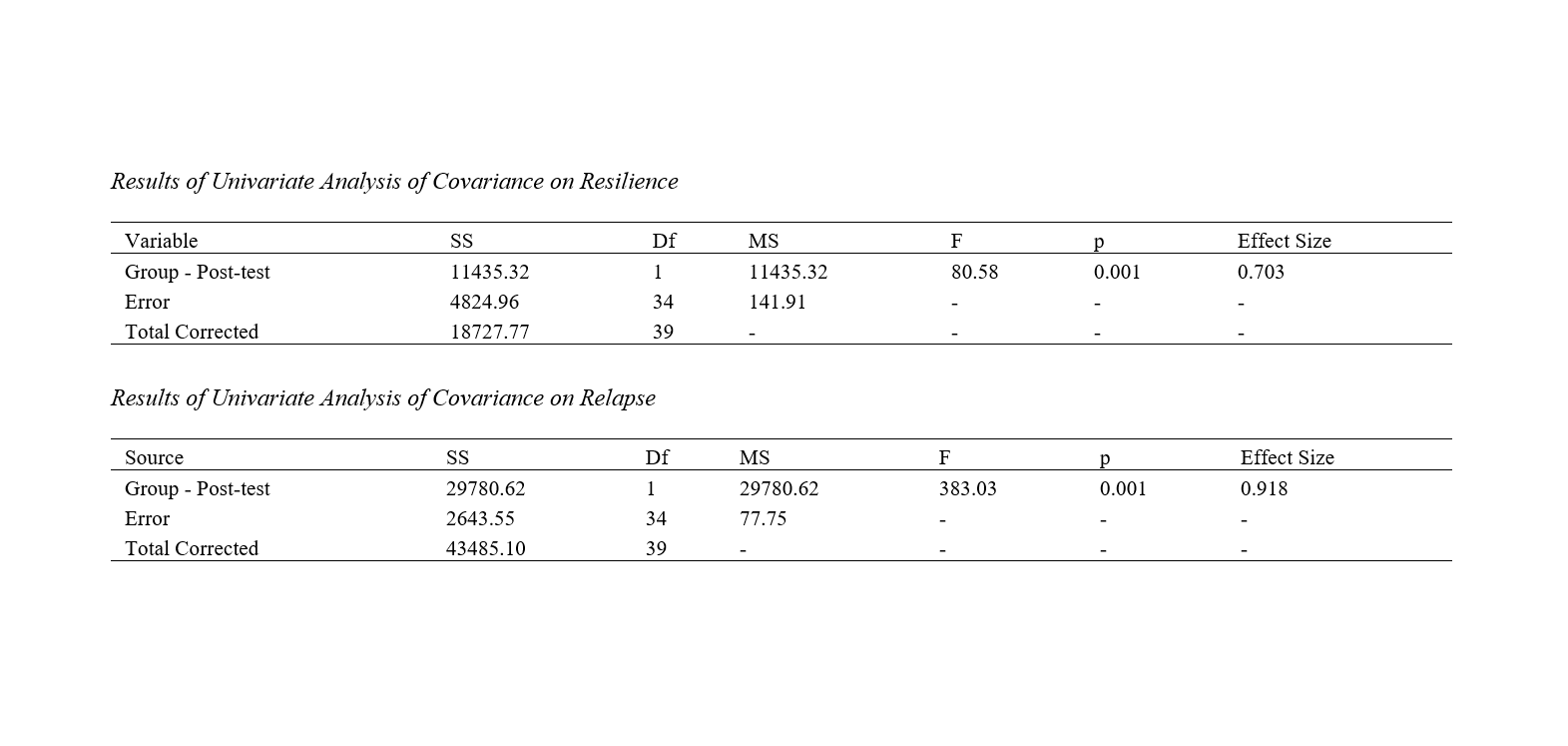The effectiveness of matrix therapy in resilience and relapse of amphetamine addicts
Keywords:
Addiction, matrix therapy, resilience, relapseAbstract
Background and Aim: The purpose of this research was to investigate the effectiveness of matrix therapy in resilience and relapse in amphetamine addicts. Research method: This research was a semi-experimental type with a pre-test and post-test design, an experimental group and a control group. The statistical population of the research consists of 1,400 men addicted to amphetamines, self-referred to addiction treatment centers in Tehran. Sampling According to the sample drop, 40 people from the community were selected by available sampling method and they were randomly selected into two groups of 20 people, control and experimental, and the questionnaires of consumption temptation and Beck depression were used. Findings: The results showed that the matrix treatment was significantly different from the control group, the matrix treatment led to an increase in resilience and reduced relapse, and also the matrix treatment reduced the rate of relapse to consumption. Conclusion: According to the findings of the present study, it can be concluded that matrix therapy can be used as a complementary drug treatment in people dependent on amphetamines.
Downloads

Downloads
Additional Files
Published
Submitted
Revised
Accepted
Issue
Section
License

This work is licensed under a Creative Commons Attribution-NonCommercial 4.0 International License.








